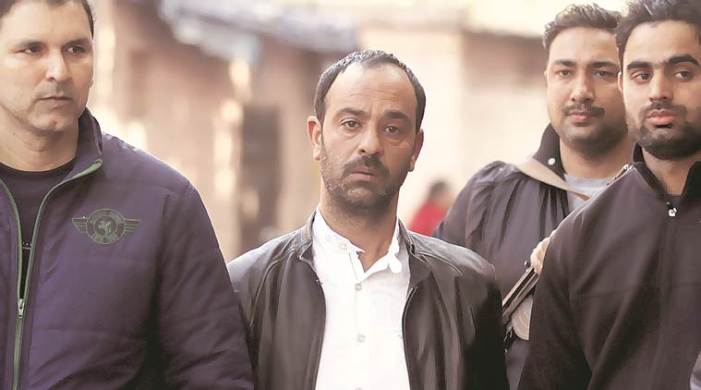NEW DELHI: A Delhi court today granted bail to Bilal Ahmed Kawa, a suspected LeT operative arrested recently in connection with the 2000 Red Fort attack case, saying other accused having more serious charges against them have been either acquitted or discharged in the case.
Kawa was arrested from Terminal-3 of the Delhi airport on January 10 during a joint operation by the Delhi Police and the Gujarat Anti-Terrorism Squad.
Additional Sessions Judge Sidharth Sharma also took on record the Income Tax Returns filed by Kawa, which, according to the accused, showed that he was not absconding.
While seeking bail, his advocate claimed that while many in the “troubled state of Jammu and Kashmir” say they are not a part of this country, the accused openly says he was an Indian.
Granting the relief, the court asked Kawa to furnish a personal bond of Rs 50,000 and a surety of the like amount.
It directed him not to hamper the investigation and join the probe whenever asked by the Delhi Police.
It noted that earlier out of 11 persons were arrested in connection with case, 10 were discharged or acquitted by either a trial court or the Delhi High Court and only Mohammad Arif alias Ashfaq of the Pakistan-based terror group LeT was convicted and awarded death sentence, which was upheld by the Supreme Court.
The apex court later stayed the execution of Ashfaq’s death sentence as he has filed a fresh petition seeking reconsideration of his review petition which was not heard in the open court as mandated by a judgement of a top court Constitution bench.
Taking note of the judicial development in the case, the judge today said, “All other accused, except Mohammad Arif alias Ashfaq, have either been acquitted or discharged. The charges of conspiracy could not be established. There were more allegations against those acquitted or discharged.
“Police custody of the accused (Kawa) was taken for ten days and further police custody not required. The documents related to IT returns, TDS (Tax Deducted at Source) certificates and those by the police officials were shown. Considering the documents and submissions, I find it a fit case for grant of bail,” the judge said.
Appearing for Kawa, senior lawyer Aman Lekhi and advocate Bakul Jain told the court that he was not absconding and was carrying out his business.
“He was filing Income Tax returns and his address was always known, which means it was all legitimate. Had he been a terrorist, he would not have travelled to Delhi,” the counsel said, adding that there was no incriminating evidence against him.
They said that no purpose would be served by keeping him in further custody.
The bail application was opposed by the police which said that he was one of the conspirators in the attack and was absconding for 17 years and had been declared a proclaimed offender.
They said that the investigation against him was at initial stage and he might hamper the ongoing probe.
The police have alleged that Kawa had received Rs 29.5 lakh from Pakistan through hawala operators to fund the Red Fort terror attack on December 22, 2000, in which three persons, including two Army jawans, were killed.
Besdies giving death penalty to Mohammad Arif, the trial court in October 2005 had sentenced two key conspirators — Nazir Ahmed Qasid and his son Farooq Ahmed Qasid — to life imprisonment.
Additional Sessions Judge O P Saini had also awarded a seven-year jail term to Arif’s wife Rehmana Yousuf Farooqui, an Indian, for giving shelter to the main accused. Other convicts — Bagar Mohsin Baghwala, Sadaqat Ali and Matloob Alam — were also awarded rigorous imprisonment for seven years.
In September 2007, the Delhi High Court had upheld the death sentence to Arif, saying terrorists who have no value for human lives deserved capital punishment.
The high court, however, acquitted six others, including Farooqui, citing lack of sufficient evidence against them.
The Supreme Court in August 2011 upheld Arif’s death sentence, saying the “arrogant” assault was a “brazen attempt” by Pakistan “to overawe” India and wage war against it.
Later, it also dismissed a review as well as the curative petition of Arif.
However, the Pakistani terrorist moved again the apex court seeking reconsideration of his review plea on the ground that a Constitution bench had held that the review plea of a death row convict has to be heard in an open court by a three-judge bench.
The top court stayed the execution of his death sentence and decided on January 19, 2016 that his review plea would be heard in open court. The plea is pending since then. (agencies)


